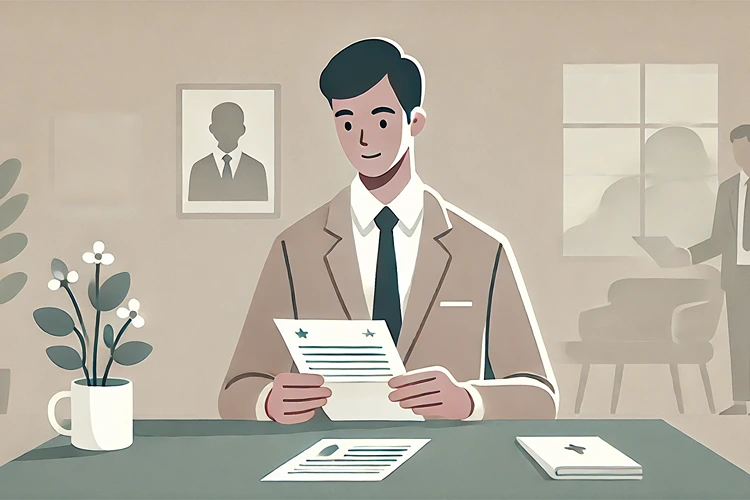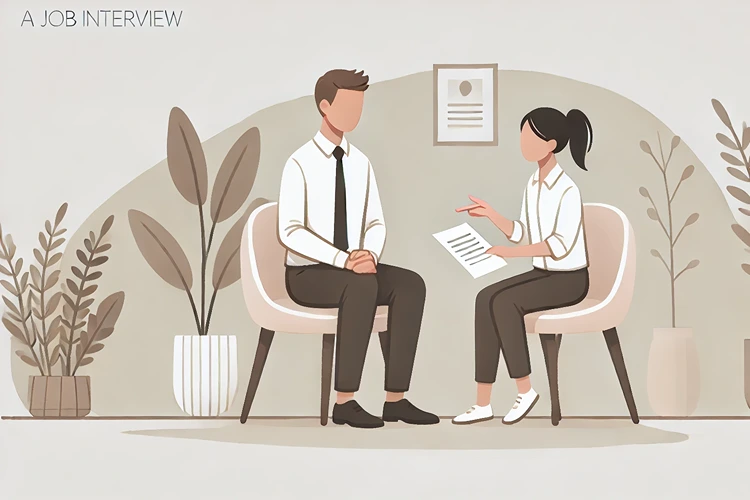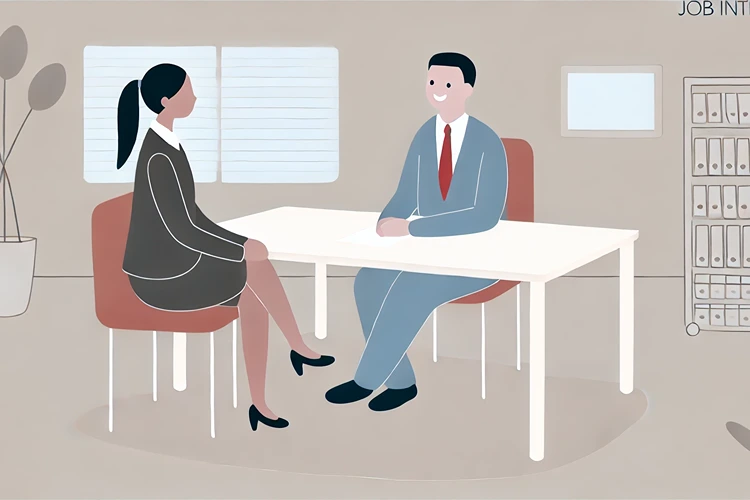Job interviews can be nerve-wracking experiences, but they are a necessary step toward landing the job you’ve been eyeing. The key to success lies in preparation and awareness of common pitfalls that many applicants fall into. In this article, we’ll explore the top job interview errors applicants make and, more importantly, how to avoid them.
Why Do Job Interview Mistakes Happen?
Nerves, lack of preparation, and misconceptions about the interview process are the usual suspects when it comes to job interview errors. It’s natural to feel a bit overwhelmed, especially if you really want the job. But understanding why these mistakes happen can help you avoid them in the first place.
One of the biggest reasons people make mistakes during interviews is the pressure to perform perfectly. This pressure can cause you to overthink your answers or freeze up entirely. Additionally, there’s often a misunderstanding of what interviewers are actually looking for—hint: it’s not perfection, but a good fit for the role and company culture.
What Are the Top Job Interview Errors?
Let’s dive into some of the most common job interview errors applicants make. These mistakes can range from poor preparation to miscommunication and everything in between. Knowing these pitfalls will help you navigate your next interview with confidence.
1. Arriving Late or Too Early
Tardiness is a major red flag in a job interview. It signals to the interviewer that you may not respect their time or that you lack organizational skills. Arriving too early, while less damaging, can also be awkward and put undue pressure on the interviewer.
Helpful Hint:
Aim to arrive about 10-15 minutes before your scheduled interview time. This shows punctuality without putting the interviewer on the spot to start early.
2. Not Researching the Company
Walking into an interview without knowing key details about the company is a major mistake. It signals to the interviewer that you’re not serious about the role or that you’re applying to jobs indiscriminately. Researching the company helps you tailor your responses to align with their values and needs.
3. Failing to Practice Common Interview Questions
While you can’t predict every question you’ll be asked, there are some common ones that come up in nearly every interview. Failing to practice your responses can leave you fumbling for words, which can hurt your chances of making a good impression.
4. Overlooking Non-Verbal Communication
Your body language says a lot about you, sometimes even more than your words. Slouching, avoiding eye contact, or fidgeting can make you seem disinterested or anxious. On the other hand, good posture, steady eye contact, and a firm handshake convey confidence and professionalism.
How to Avoid These Common Job Interview Mistakes
Now that we’ve identified the top job interview errors, let’s discuss how to avoid them. Preparation is key, but there are also strategies you can employ during the interview to ensure you present your best self.
1. Prepare for Common Interview Questions
Preparation doesn’t just mean reading up on the company; it also means being ready for the questions you’re likely to face. Practice answering common interview questions out loud, preferably with a friend or in front of a mirror. This will help you feel more confident and polished during the actual interview.
2. Research the Company Thoroughly
Spend time learning about the company’s history, mission, values, and recent news. Not only will this prepare you to answer questions like, “Why do you want to work here?” but it will also help you ask insightful questions of your own.
3. Master the Art of Non-Verbal Communication
Your body language should reflect confidence and professionalism. Practice good posture, maintain eye contact, and offer a firm handshake. These small actions can make a big difference in how you’re perceived.
What Are the Consequences of These Mistakes?
Making even one of these job interview errors can significantly reduce your chances of getting hired. Interviewers often have a limited amount of time to assess candidates, and first impressions are crucial. Failing to prepare or making a major mistake can cause you to be immediately disqualified from the running.
Stats:
According to a survey by CareerBuilder, 50% of employers know within the first five minutes of an interview if a candidate is a good fit for the role. Making an early mistake can thus be very costly.
1. Lost Opportunities
The most obvious consequence of making a job interview mistake is missing out on the job. Companies often have multiple candidates for a single position, and even a minor slip-up can put you at the bottom of the list.
2. Damaged Professional Reputation
In certain industries, word travels fast. Making a poor impression in one interview could affect your chances with other companies, especially if you’re applying within a niche market.
How to Effectively Prepare for a Job Interview

Preparation is the foundation of any successful job interview. Beyond practicing common questions and researching the company, there are several other steps you can take to ensure you’re ready to impress. Let’s explore how to effectively prepare for your next job interview.
1. Understand the Job Description
One of the most important steps in preparing for a job interview is thoroughly understanding the job description. Go beyond just reading it—analyze the key responsibilities, required skills, and the qualifications listed. Think about how your experience aligns with these requirements and be ready to provide examples that demonstrate your suitability for the role.
Additionally, understanding the job description helps you anticipate the types of questions you might be asked. For instance, if the role emphasizes teamwork, you can prepare anecdotes that highlight your ability to collaborate effectively.
2. Prepare Your Own Questions
Interviews are a two-way street. While the interviewer assesses your fit for the role, you should also be evaluating whether the company is a good fit for you. Preparing thoughtful questions shows that you’re genuinely interested in the position and have done your homework.
Some questions you might consider asking include:
- What are the key priorities for this role in the first six months?
- Can you describe the team I would be working with?
- How does the company support professional development and growth?
3. Plan Your Journey
Nothing adds to interview stress like rushing because you’re running late. To avoid this, plan your journey well in advance. Know exactly where the interview will take place and how long it will take you to get there. If possible, do a trial run to the location to ensure you know the route and any potential traffic or public transport issues.
Also, have a backup plan in case of unexpected delays. Being punctual is crucial and planning ahead can help you arrive calm and composed.
4. Dress the Part
Your appearance plays a significant role in the first impression you make. It’s essential to dress appropriately for the company culture. If you’re unsure, it’s better to be slightly overdressed than underdressed. Typically, business or business-casual attire is a safe bet, but researching the company can give you better insight into their dress code.
Preparation Timeline for Job Interviews
| Timeline | Preparation Activity |
|---|---|
| 1-2 Weeks Before | Research the company and the role thoroughly. Start practicing answers to common interview questions. |
| 3-5 Days Before | Prepare your questions for the interviewer. Plan your journey to the interview location and check for any potential issues. |
| 1 Day Before | Review your resume and cover letter. Lay out your interview outfit and ensure everything is ready. |
| The Night Before | Get a good night’s sleep to ensure you’re well-rested and alert for the interview. |
| The Morning Of | Arrive early to the interview location, stay calm, and review your notes one last time. |
Common Misconceptions About Job Interviews
Job interviews can be surrounded by a lot of myths and misconceptions. Believing in these can lead to unnecessary anxiety or even mistakes during the interview. Let’s debunk some of the most common misconceptions.
1. The Interviewer is Trying to Trick You

A common fear is that interviewers are out to catch you off guard or trick you with difficult questions. In reality, most interviewers want to see you succeed. They’re looking for a candidate who is a good fit for the role and the company, not someone who can answer trick questions perfectly. Focus on being honest and genuine in your responses rather than trying to anticipate traps.
2. You Should Have a Perfect Answer for Every Question
It’s easy to feel pressured to have flawless answers to every question. However, interviewers understand that no one is perfect, and they’re not necessarily looking for perfection. They’re more interested in how you think, problem-solve, and whether you’re a good cultural fit for the team.
If you’re unsure about a question, it’s okay to take a moment to think before answering or to ask for clarification. It’s better to provide a thoughtful response than to rush through an answer you’re not confident in.
3. It’s All About Selling Yourself
While it’s important to showcase your skills and experience, interviews aren’t just about selling yourself. They’re also about finding the right mutual fit. Being overly focused on selling yourself can come across as inauthentic. Instead, focus on having a genuine conversation about how your skills align with the needs of the company.
Stats:
According to LinkedIn, 92% of recruiters agree that soft skills are just as important as hard skills in determining a candidate’s fit for a role. This highlights the importance of focusing on interpersonal qualities during an interview, not just technical expertise.
Final Preparations Before the Interview
As your interview date approaches, there are a few final preparations you should make to ensure you’re ready to impress.
1. Review Your Resume and Cover Letter
Be sure you’re familiar with everything on your resume and cover letter. The interviewer may ask you to elaborate on specific points, and you’ll want to be prepared to discuss your experiences confidently. If there’s anything on your resume that you haven’t reviewed in a while, now’s the time to refresh your memory.
2. Practice, Practice, Practice
Rehearse your answers to common questions, but also practice staying calm and collected. Consider doing a mock interview with a friend or family member who can provide feedback. The more you practice, the more comfortable you’ll feel during the actual interview.
3. Get a Good Night’s Sleep
It might sound simple, but getting enough rest the night before your interview is crucial. You’ll perform better if you’re well-rested and alert. Try to go to bed early and avoid late-night cramming or stress—your preparation will pay off, and you’ll be at your best after a good night’s sleep.
Benefits of Following These Interview Tips vs. Consequences of Ignoring Them
Pros
- Increases your chances of landing the job.
- Helps build a positive first impression.
- Prepares you for unexpected questions or situations.
- Reduces interview anxiety through thorough preparation.
- Enhances your understanding of the role and company culture.
Cons
- Ignoring these tips can lead to missed opportunities.
- Can result in a negative first impression.
- May cause you to be unprepared for critical questions.
- Increases the likelihood of interview anxiety and poor performance.
- Could lead to accepting a job that’s not the right fit due to lack of research.
FAQs
Wrapping Up
Successfully navigating a job interview is no small feat, but with the right preparation and mindset, it becomes a manageable and rewarding process. By avoiding common job interview errors, researching the company, practicing your responses, and understanding the dynamics of the interview, you position yourself as a strong candidate. Remember, the goal is not just to impress but to find a role that aligns with your skills and career aspirations. Keep these tips in mind as you prepare for your next opportunity, and you’ll be well on your way to making a positive, lasting impression.
